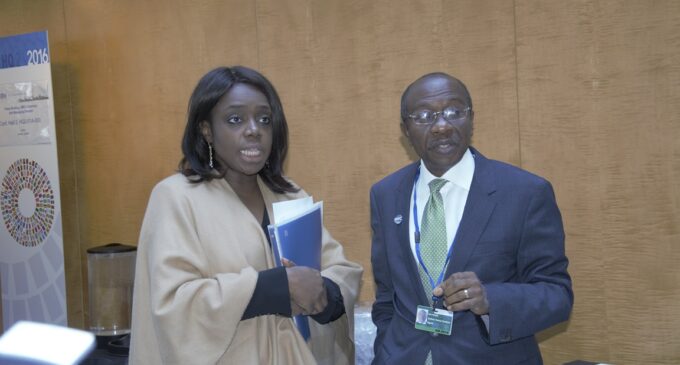2016 budget suffers setback as Fitch downgrades Nigeria, puts GDP growth at 1.5%

Fitch, Moody, S&P, the biggest credit rating firms in the world, have all downgraded Nigeria’s credit ratings, making it all the more difficult to fund the 2016 budget.
In March, Standard & Poor’s (S&P) revised Nigeria’s sovereign credit outlook to negative, from the stable outlook it initially had, pulling the country’s rating to B+.
Moody’s Investors Service, better known as Moody’s, also downgraded Nigeria’s long-term issuer ratings from Ba3 to B1.
B1, B2 and B3 are judged to “have speculative elements and a significant credit risk”, while Ba1, Ba2 and Ba3 are seen as “speculative and a high credit risk”.
Moody’s assigned a stable outlook after concluding the review for downgrade initiated in March 2016.
On Thursday, Fitch, the third of the big three, downgraded Nigeria to “B+; outlook stable”, adding that GDP growth will fall to 1.5percent in 2016 from 2.8percent in 2015.
The International Monetary Fund (IMF) says Nigeria’s GDP growth is expected to fall to 2.3 percent, but first quarter results (GDP growth rate) of -0.36 threatens the realisation of IMF’s forecast.
Fitch also forecasts that Nigeria’s general government fiscal deficit will grow to 4.2percent in 2016, while the country’s current account deficit will worsen to 3.3percent of GDP in 2016, from 2.6percent in 2015.
Fitch says the effective depreciation of naira seen in the new foreign exchange regime will increase debt and debt service burden.
The rating agency however said inflation will cut back in from about 15.6 percent in May to about 12percent by December 2016.
Fitch says Nigerian banks “are sufficiently well capitalised to absorb the impact of the 40% effective devaluation of the naira against the US dollar seen as of yesterday (Wednesday), the third day of trading under the country’s new market-driven exchange-rate policy regime”.
The agency said “the new FX regime could bring some relief if the supply of FC improves substantially,” adding that “the standalone viability ratings of the Nigerian banks are all in the ‘b’ range, indicating highly speculative fundamental credit quality”.
The downgraded ratings by the three agencies affect – negatively – the possibility of Nigeria getting necessary loans for funding the 2016 budget.















There are no comments at the moment, do you want to add one?
Write a comment